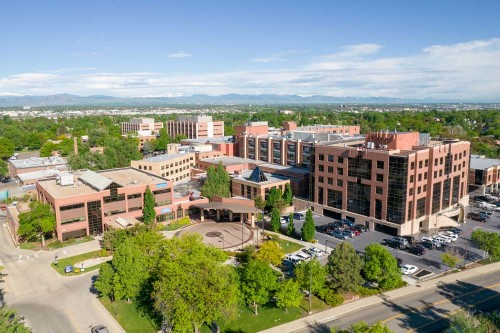
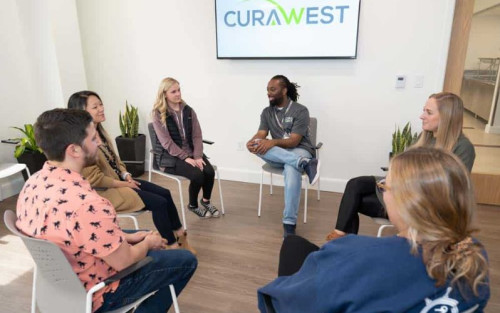




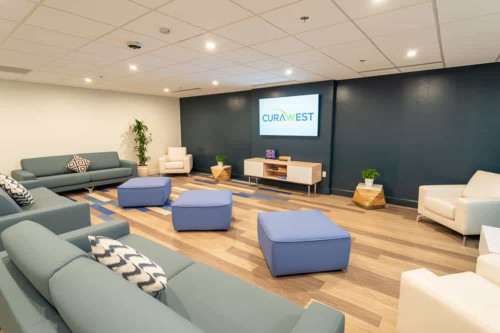
Guardian Recovery - CuraWest
Verified Center
This provider's information has been quality-checked by Recovery.com's Research Team for accuracy and completeness, including center verification through appropriate third-party organizations.
Treatment Focus
This center treats substance use disorders and mental health conditions. You'll receive individualized care catered to your unique situation and diagnosis, learn practical skills for recovery, and make new connections in a restorative environment.
Primary Level of Care
Offering intensive care with 24/7 monitoring, residential treatment is typically 30 days and can cover multiple levels of care. Length can range from 14 to 90 days typically.
Treatment Focus
This center treats substance use disorders and mental health conditions. You'll receive individualized care catered to your unique situation and diagnosis, learn practical skills for recovery, and make new connections in a restorative environment.
Primary Level of Care
Offering intensive care with 24/7 monitoring, residential treatment is typically 30 days and can cover multiple levels of care. Length can range from 14 to 90 days typically.
Provider's Policy
CuraWest will contact your insurance provider to learn more about your benefits and how you are covered. Their Treatment Advisors will share all your insurance benefit information with you in simple language so you can understand exactly what your coverage includes.
Guardian Recovery - CuraWest
Guardian Recovery - CuraWest
About Guardian Recovery - CuraWest
Guardian Recovery - CuraWest provides detox, short-term residential, residential, and outpatient addiction and mental health treatment services. They have nurses and other medical personnel on site 24/7 to closely monitor each client. CuraWest uses a customized blend of evidence-based and holistic treatments for a whole-person approach to recovery.
For clients seeking substance use treatment, they can use medication-assisted treatment (MAT) to help ease withdrawal and make the process more comfortable. After detox, which can be a standalone treatment, clients transition to residential care.
Client-Centered Treatment
Clients begin treatment with a thorough medical assessment, which takes into account their history with mental health, addiction, family history, and more. A psychiatric evaluation helps CuraWest diagnose co-occurring conditions, if present. CuraWest tailors each aspect of treatment to the findings of their assessments, clients’ preferences, and their needs.
Caring for Clients and Families
CuraWest uses trauma-informed therapy to address underlying trauma or post-traumatic stress disorder (PTSD). They also involve family if desired, with family therapy sessions on site or virtually, and family psychoeducational workshops. CuraWest teaches relapse prevention skills to clients and their families too, helping all become educated on recovery, triggers, and healthy boundaries.
Recover in a Unique Environment
CuraWest’s location in downtown Denver connects clients to nature, too. Along with sweeping views, clients can go on group hikes and garden in nearby Botanical Gardens. Their holistic activities include Reiki, yoga, and guided meditation. Most of CuraWest’s rooms are private. Their modern property provides treatment in a welcoming and comfortable space, helping clients focus on their recovery.

Highlights from the Center
Highlights
These highlights are provided by and paid for by the center.
Licensed Medical Facility
Customized Treatment Plans
Medically Assisted Detox
Center Overview
Treatment Focus
This center treats substance use disorders and mental health conditions. You'll receive individualized care catered to your unique situation and diagnosis, learn practical skills for recovery, and make new connections in a restorative environment.
Joint Commission Accredited
The Joint Commission accreditation is a voluntary, objective process that evaluates and accredits healthcare organizations (like treatment centers) based on performance standards designed to improve quality and safety for patients. To be accredited means the treatment center has been found to meet the Commission's standards for quality and safety in patient care.

Insurance Accepted
Cash Pay Rates
Estimated Cash Pay Rate
Center pricing can vary based on program and length of stay. Contact the center for more information. Recovery.com strives for price transparency so you can make an informed decision.
Meet Your Care Team

Brian Tierney
Executive Director

Kyli Day
Clinical Director
MS, LPC

Ashley Jordison
Director of Nursing

Sarah O’Donnell
Director of Operations

Taylor Gould
Counselor
MA
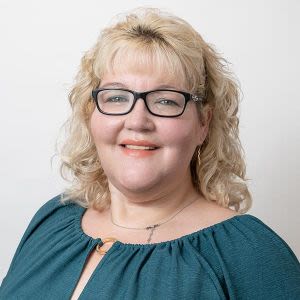
Nicole Hannah
Nurse
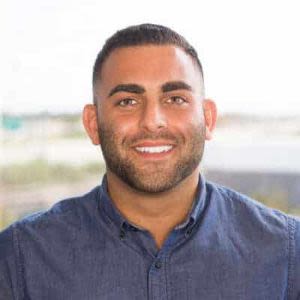
Ryan Newman
Director of Admissions

Brianna Bricken
Admissions Manager

Sarah Babaa
Treatment Advisor/Concierge Account Manager
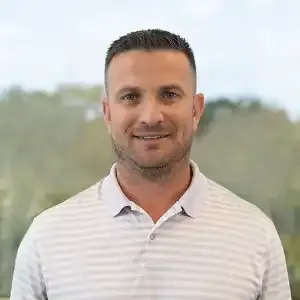
Michael Audette
Treatment Advisor
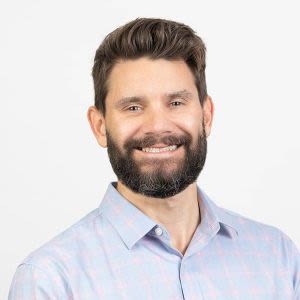
Chip Roy
Treatment Advisor




Levels of Care








Your Care Options
Specializations
Alcohol
Using alcohol as a coping mechanism, or drinking excessively throughout the week, signals an alcohol use disorder.
Drug Addiction
Drug addiction is the excessive and repetitive use of substances, despite harmful consequences to a person's life, health, and relationships.
Medication-Assisted Treatment
Combined with behavioral therapy, prescribed medications can enhance treatment by relieving withdrawal symptoms and focus patients on their recovery.
Opioids
Opioids produce pain-relief and euphoria, which can lead to addiction. This class of drugs includes prescribed medication and the illegal drug heroin.
Prescription Drugs
It's possible to abuse any drug, even prescribed ones. If you crave a medication, or regularly take it more than directed, you may have an addiction.
Who We Treat
Young Adults
Emerging adults ages 18-25 receive treatment catered to the unique challenges of early adulthood, like college, risky behaviors, and vocational struggles.
LGBTQ+
Addiction and mental illnesses in the LGBTQ+ community must be treated with an affirming, safe, and relevant approach, which many centers provide.
Men and Women
Men and women attend treatment for addiction in a co-ed setting, going to therapy groups together to share experiences, struggles, and successes.
Midlife Adults
For adults ages 40+, treatment shifts to focus on the unique challenges, blocks, and risk factors of their age group, and unites peers in a similar community.
Approaches
Evidence-Based
A combination of scientifically rooted therapies and treatments make up evidence-based care, defined by their measured and proven results.
Holistic
A non-medicinal, wellness-focused approach that aims to align the mind, body, and spirit for deep and lasting healing.
Medical
Medical addiction treatment uses approved medications to manage withdrawals and cravings, and to treat contributing mental health conditions.
Twelve Step
Incorporating spirituality, community, and responsibility, 12-Step philosophies prioritize the guidance of a Higher Power and a continuation of 12-Step practices.
Therapies
1-on-1 Counseling
Patient and therapist meet 1-on-1 to work through difficult emotions and behavioral challenges in a personal, private setting.
Online Therapy
Patients can connect with a therapist via videochat, messaging, email, or phone. Remote therapy makes treatment more accessible.
Art Therapy
Visual art invites patients to examine the emotions within their work, focusing on the process of creativity and its gentle therapeutic power.
Family Therapy
Family therapy addresses group dynamics within a family system, with a focus on improving communication and interrupting unhealthy relationship patterns.
Horticultural Therapy
Gardening can be both meditative and inspiring. This therapy encourages social, emotional, and physical recovery.
Medication-Assisted Treatment
Combined with behavioral therapy, prescribed medications can enhance treatment by relieving withdrawal symptoms and focus patients on their recovery.
Recreation Therapy
In recreation therapy, recovery can be joyful. Patients practice social skills and work through emotional triggers by engaging in fun activities.
Relapse Prevention Counseling
Relapse prevention counselors teach patients to recognize the signs of relapse and reduce their risk.
Conditions We Treat
Anger
Although anger itself isn't a disorder, it can get out of hand. If this feeling interferes with your relationships and daily functioning, treatment can help.
Anxiety
Anxiety is a common mental health condition that can include excessive worry, panic attacks, physical tension, and increased blood pressure.
Codependency
Codependency is a pattern of emotional dependence and controlling behavior. It's most common among people with addicted loved ones.
Depression
Symptoms of depression may include fatigue, a sense of numbness, and loss of interest in activities. This condition can range from mild to severe.
Gambling
Excessive, repetitive gambling causes financial and interpersonal problems. This addiction can interfere with work, friendships, and familial relationships.
Gaming
Compulsive gaming is most often a problem for children and teens. The disorder can affect physical health, sleep, and the ability to focus at school.
Stress
Stress is a natural reaction to challenges, and it can even help you adapt. However, chronic stress can cause physical and mental health issues.
Trauma
Some traumatic events are so disturbing that they cause long-term mental health problems. Those ongoing issues can also be referred to as "trauma."
Substances We Treat
Alcohol
Using alcohol as a coping mechanism, or drinking excessively throughout the week, signals an alcohol use disorder.
Benzodiazepines
Benzodiazepines are prescribed to treat anxiety and sleep issues. They are highly habit forming, and their abuse can cause mood changes and poor judgement.
Chronic Relapse
Consistent relapse occurs repeatedly, after partial recovery from addiction. This condition requires long-term treatment.
Co-Occurring Disorders
A person with multiple mental health diagnoses, such as addiction and depression, has co-occurring disorders also called dual diagnosis.
Cocaine
Cocaine is a stimulant with euphoric effects. Agitation, muscle ticks, psychosis, and heart issues are common symptoms of cocaine abuse.
Drug Addiction
Drug addiction is the excessive and repetitive use of substances, despite harmful consequences to a person's life, health, and relationships.
Heroin
Heroin is a highly addictive and illegal opioid. It can cause insomnia, collapsed veins, heart issues, and additional mental health issues.
Methamphetamine
Methamphetamine, or meth, increases energy, agitation, and paranoia. Long-term use can result in severe physical and mental health issues.
Languages
Aftercare
Care Designed for Your Needs
Personal Amenities
Amenities
Special Considerations
Executive Program
Addiction and mental health treatment for executives typically involves high discretion, greater technology access, and more private, 1-on-1 care.
Flexible technology policies
Centers with flexible technology policies allow professionals to stay in touch with work and give patients a greater sense of connection and normalcy.
Activities
Yoga
Yoga is both a physical and spiritual practice. It includes a flow of movement, breathing techniques, and meditation.

What people are saying
Treatment
4.7
Accommodations
4.9
Food & Nutrition
4.8
Value
4.7
Pros
- Friendly & Competent Staff (8)
- Excellent & Effective Treatment Programming (7)
- Fun Activities (7)
- Confidential (6)
Cons
- Not Enough Time With Therapist (2)
- Limited Time to Work (2)
JLF
Treatment in 2024 • (30 days) • Reviewed 03/11/24
Former Client
•Culinary Arts Chef
•Colorado
Brit
Treatment in 2024 • (14 days) • Reviewed 08/27/24
Former Client
Dan
Treatment in 2024 • (14 days) • Reviewed 08/17/24
Former Client
MB
Treatment in 2024 • (7 days) • Reviewed 08/01/24
Former Client
Alex
Treatment in 2024 • (7 days) • Reviewed 05/30/24
Former Client





